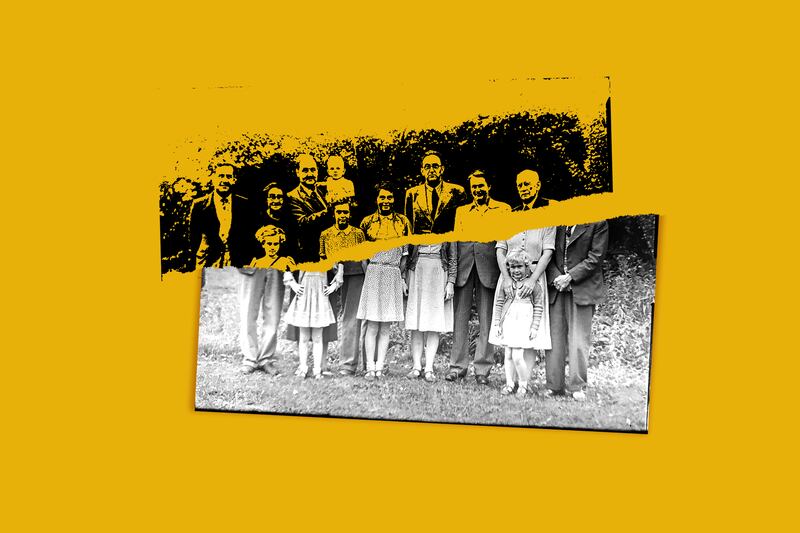What does family mean to you? Probably not the same thing it means to the editors of The New Yorker.
Last week the venerable magazine published a “family issue,” described as a “weeklong exploration of what family means today.”
Obviously the edition features an article about a refuge for abandoned animals because, as everyone knows, pets are family too. But it is The New Yorker’s take on relationships among human beings that gives a hint about the way America’s elites understand family and why they seem bent on destroying it.
Take the extensive interview with Laura Wasser, “divorce lawyer to the stars.” The founder of the website “It’s Over Easy,” which was recently bought by Divorce.com, Wasser enjoys philosophizing about how people weren’t meant to be monogamous.
Echoing her favorite pop sociologists, one assumes, she notes that marriage was really for a time when people only lived a few decades. Moreover, she explains, “I think people are much more accepting of the idea of divorce and a next chapter, and more importantly the idea of combining family. And I think that’s really important because, frankly, the more people to love your kids, the better.”
Is it good news that we are more accepting of long-term relationships ending? Is it better for kids to be loved by more people, through combining families? The research isn’t really there. Children who are loved and cared for by biological parents who live in their home tend to have much better outcomes in life than children who are the products of divorce, and adding lots of half-siblings and stepparents doesn’t improve things.
Wasser, who was herself divorced and then had kids with two other men, notes that she is “a mom first and foremost” and admits that sharing custody of her children was hard at first.
“The first time my kids spent the night away, I was like, ugh, and the second time I was like, OK, I’ll have a glass of wine, take a bath, there’s nobody here bugging me. And the third time I went out on a date, and the fourth time, I brought somebody home! You can’t do that when you’ve got your kids!” Clearly it’s a win-win — for Wasser and her dates, if not her children.
The idea that “family” means what is convenient and enjoyable for adults is clear also in a piece on Feeld, a “hookup app for the emotionally mature,” which author Emily Witt found when “her fantasy of family dissolved.”
During the pandemic, Witt and the folks she interviewed decided that the loneliness they were experiencing was simply too much and while they wouldn’t have raves, they would engage in discreet hookups, some of which involved more than one person.
What does this have to do with family? It’s unclear, but Witt waxes poetic about how the users “favor a certain kind of maturity and decorum” while engaged in their search for “not romance, but sex broadly defined.”
The company’s chief creative officer explains that just like psychedelic drugs have become more mainstream now, so “we want to help people navigate this change and push forward this next age of how we view identity, sexuality and relationships.”
But let’s be clear: having any antiquated expectation of a “relationship” actually creates more problems.
As one of the company’s founders explains, “There’s a lot of judgment when you come to a date with relationship expectations.” People will have a “very specific list” of traits they are looking for and that is “very traumatizing” to others. … “You’re being rejected because you’re not fitting into someone’s perfect picture.” That’s why he prefers the “noncommittal approach.”
Between the articles about why prenups are so popular and “what should a queer children’s book do,” the one article that seems most relevant to a “conventional” definition of family is about children who lost parents to COVID-19.
It’s a hard piece to read, with emotional interviews with children and teens on what it was like to lose the most important person in their lives. As one girl explained about her father’s death, “You never know how many people don’t understand you until the one person who did understand you isn’t here.”
The spouses left behind are also bereft, trying whatever they can do to comfort their children even as they process their own grief. They are not sitting around wondering about the “next chapter” of their lives or how they can regain sexual fulfillment in the wake of these tragedies. They are trying to financially support their families and figure out how to make it through. The kids have friends, but it’s not the same. They want the person they have grown to depend on. They want family.
Naomi Schaefer Riley is a senior fellow at the American Enterprise Institute, a Deseret News contributor and the author of “No Way to Treat a Child: How the Foster Care System, Family Courts, and Racial Activists Are Wrecking Young Lives,” among other books.


